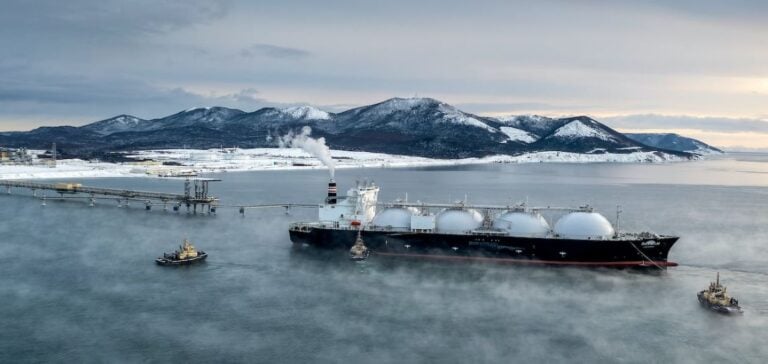US sanctions announced on November 21 directly target Russia’s economy, particularly its energy sector. Washington imposed restrictions on fifty Russian banks, including Gazprombank, a key player in international energy transactions. This decision aims to reduce revenue generated by Russian hydrocarbon sales, a critical source of funding for Moscow.
Since April 2022, a decree signed by Vladimir Putin required foreign gas buyers to make payments in rubles through Gazprombank. This measure aimed to strengthen the ruble in the face of economic sanctions imposed after the invasion of Ukraine. However, the new US restrictions have made it impossible to use Gazprombank for transactions involving the US financial system.
Under increased pressure, Putin signed a decree on Thursday allowing the use of other non-sanctioned banks for these payments. While details on eligible banks remain unclear, this decision seeks to ensure the continuity of Russian gas exports, a cornerstone of the country’s economy. Hungary, for example, a close Kremlin ally within the European Union, has requested an exemption for Gazprombank to continue settling its gas purchases.
Major Economic Impacts
The fall of the ruble, exacerbated by recent sanctions, highlights Russia’s economic challenges. The Central Bank of Russia (CBR) announced a record exchange rate of 103.4 rubles per dollar and 109.8 rubles per euro, levels not seen since March 2022. This devaluation makes Russian exports more competitive on global markets but increases the cost of imports, fueling inflation already measured at 8.5%.
Despite these challenges, Finance Minister Anton Siluanov attempted to reassure economic actors, stating that the situation would stabilize in the coming weeks. However, this instability underscores the growing challenges for Russia, which must quickly adapt to an increasingly restrictive international economic environment.
Ongoing Energy Tensions in Europe
Since the invasion of Ukraine in February 2022, many European countries have sought to reduce their dependence on Russian gas. While Hungary still imports about two-thirds of its gas from Russia, other European nations have diversified their suppliers to minimize exposure to geopolitical pressures.
This decision by Moscow, though strategic, underscores its fragile position in the current context. By allowing greater flexibility in payments, the Kremlin aims to mitigate the effects of sanctions while maintaining a vital flow of energy revenues.






















